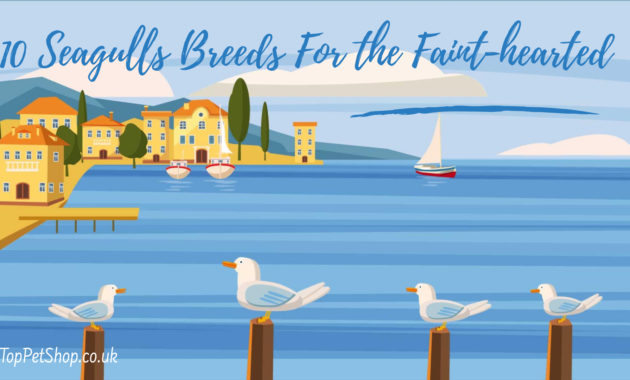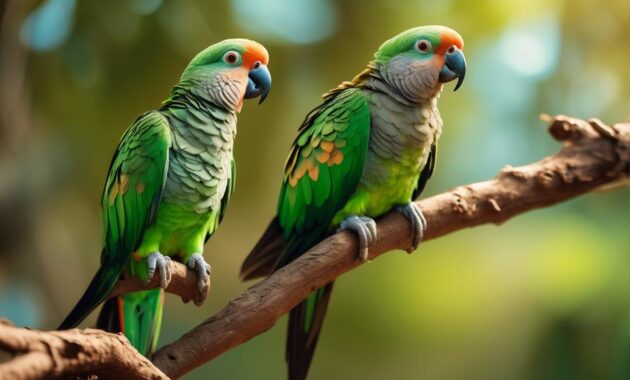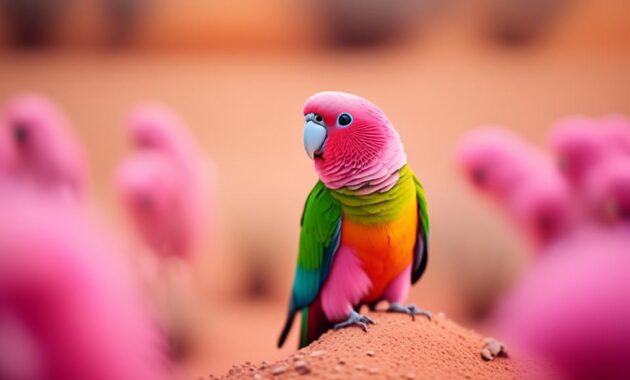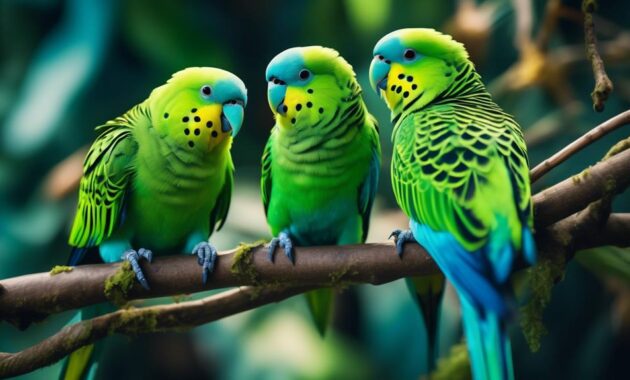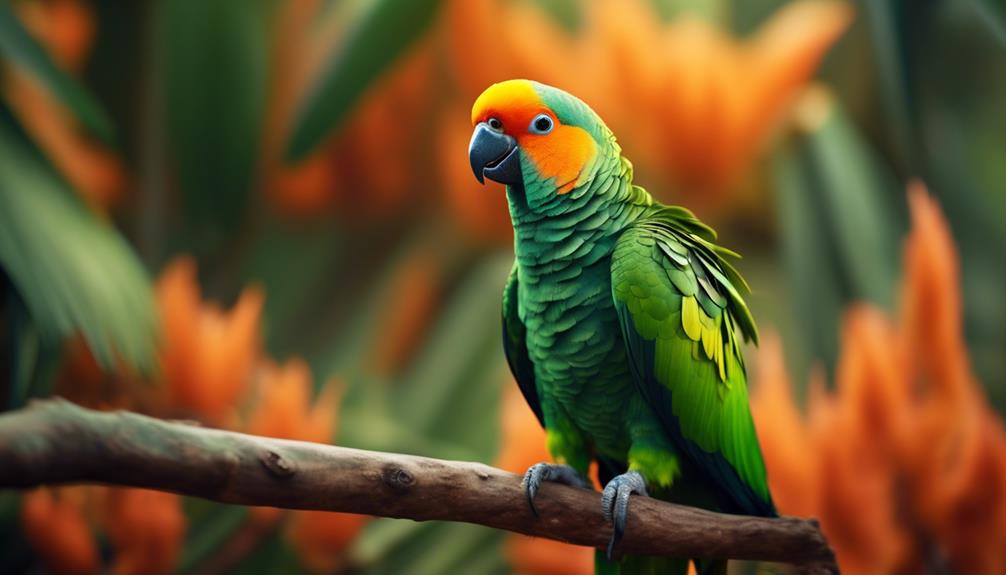
Have you ever stumbled upon a creature so vibrant and charming that you couldn’t help but feel an instant connection?
Well, get ready to meet the Jardine’s Parrot, a perfect companion that will captivate your heart and bring a touch of magic into your life.
From its stunning green feathers to its playful and affectionate nature, this remarkable bird has everything you’re looking for in a loyal companion.
But there’s so much more to discover about this enchanting creature that will leave you eager to uncover its secrets.
So, are you ready to embark on a journey to meet the vibrant and charming Jardine’s Parrot?
Key Takeaways
- Jardine’s Parrot is a vibrant and colorful bird, primarily green with orange patches on its head and wings.
- It has a long lifespan of 30-60 years and belongs to the Poicephalus family.
- Jardine’s Parrot is social and enjoys interacting with humans, forming deep bonds with a specific family member.
- Proper care and a balanced diet are important for maintaining the health and well-being of Jardine’s Parrot.
Description and Characteristics
Jardine’s Parrot is a vibrant and captivating bird, known for its striking physical features and engaging personality. This parrot species measures approximately 11 inches in length and has a lifespan of 30-60 years.
Belonging to the Poicephalus family, Jardine’s Parrot showcases a primarily green plumage with lighter tones on the head and rump. It also sports black feathers and patches on the back, tail, and wings, along with small black circles around its eyes. One of its most distinctive features is the large, bright orange patch on its forehead, complemented by bright orange patches on the wings.
When it comes to vocalization, Jardine’s Parrot is incredibly talkative and has the ability to mimic sounds and other parrots with precision. Its natural call is loud, although it’s rarely heard.
Interaction and Behavior
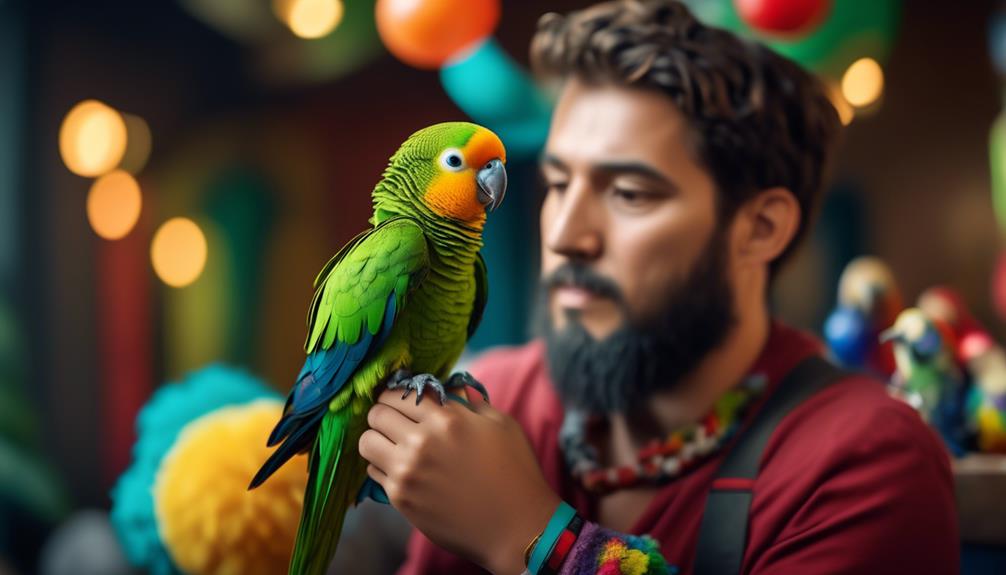
When it comes to interacting with humans, Jardine’s Parrot is a social and affectionate companion that enjoys forming deep bonds and engaging in playful activities. This vibrant and charming bird is known for its cuddly and energetic nature, making it a perfect addition to any family. Jardine’s Parrot is fun, playful, and smart, always ready to entertain and be entertained. It can happily spend time alone, occupied with toys and games, but also craves human interaction and attention. With its intelligence and affectionate personality, Jardine’s Parrot can provide great company and form deep bonds with its owner. It is a laid-back and independent bird that can adapt well to different lifestyles and is a wonderful pet for owners with children or limited free time.
| Interaction | Behavior | Bonding |
|---|---|---|
| Social | Playful | Deep |
| Affectionate | Fun | Strong |
| Cuddly | Smart | Close |
Natural Habitat and Conservation
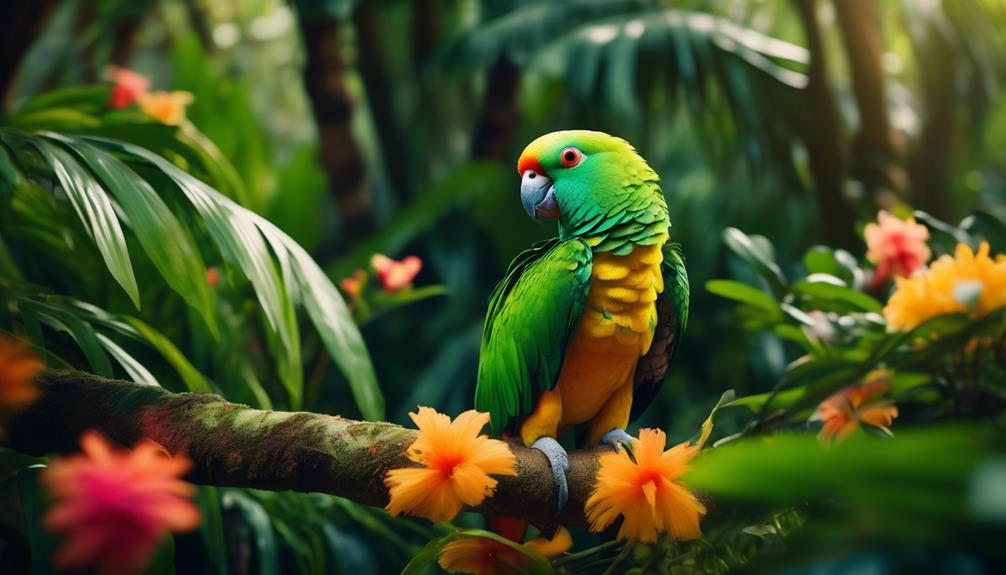
Jardine’s Parrot can be found in various regions throughout the African continent, including Liberia, the Congo river basin, Tanzania, Kenya, and Ghana.
These parrots prefer to nest in holes found in dense woodland and lowland rainforests.
However, their natural habitat is under threat due to deforestation and illegal trapping. As a result, Jardine’s Parrot is now a protected species. Conservation efforts are being made to safeguard its population and habitat.
It’s important to raise awareness about the importance of preserving their natural habitat and to discourage the illegal pet trade.
Care and Feeding
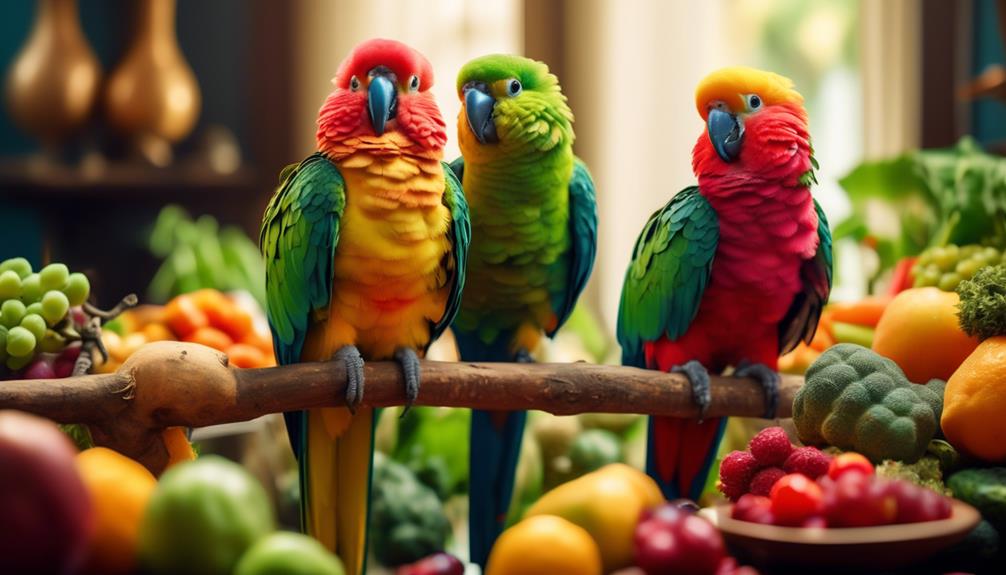
To properly care for and feed a Jardine’s Parrot, it’s important to provide a balanced diet and ensure regular bathing for their overall health and well-being.
Jardine’s Parrots have a diverse diet in the wild, consisting of seeds, insects, grass seeds, and fruits. To replicate this in captivity, a commercial seed mix designed for Poicephalus parrots can provide a balanced diet.
Additionally, fresh fruits and vegetables should be offered to provide essential vitamins. Treats such as cooked rice, corn, and chicken can be given in moderation as a source of protein.
Proper bathing is also crucial for their health, as it helps prevent skin and feather diseases.
Health and Common Conditions
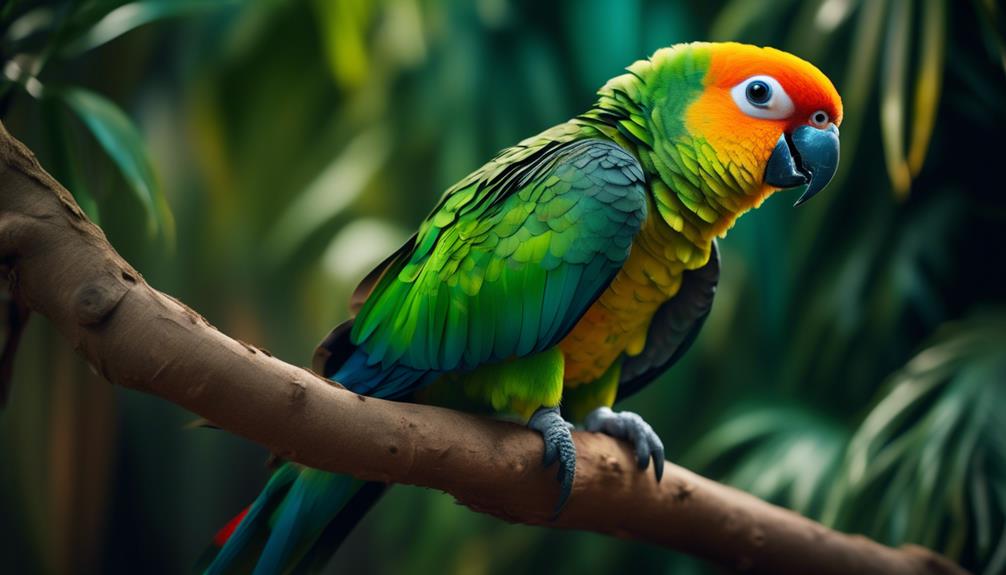
Proper care and attention to the health of your Jardine’s Parrot are essential in ensuring its overall well-being and preventing common conditions. Jardine’s Parrots are generally robust and muscular birds with good health. With proper care, they can live over 30 years, often reaching 60 years.
Regular bathing is important for their well-being, as they may be prone to skin and feather diseases in dry environments. To maintain their optimal health, they require regular veterinary check-ups and a balanced diet. Commercial seed mixes designed for Poicephalus parrots can provide a balanced diet, supplemented with fresh fruits and vegetables for vitamins. Additionally, cooked rice, corn, and chicken can serve as treats and a source of protein.
Personality
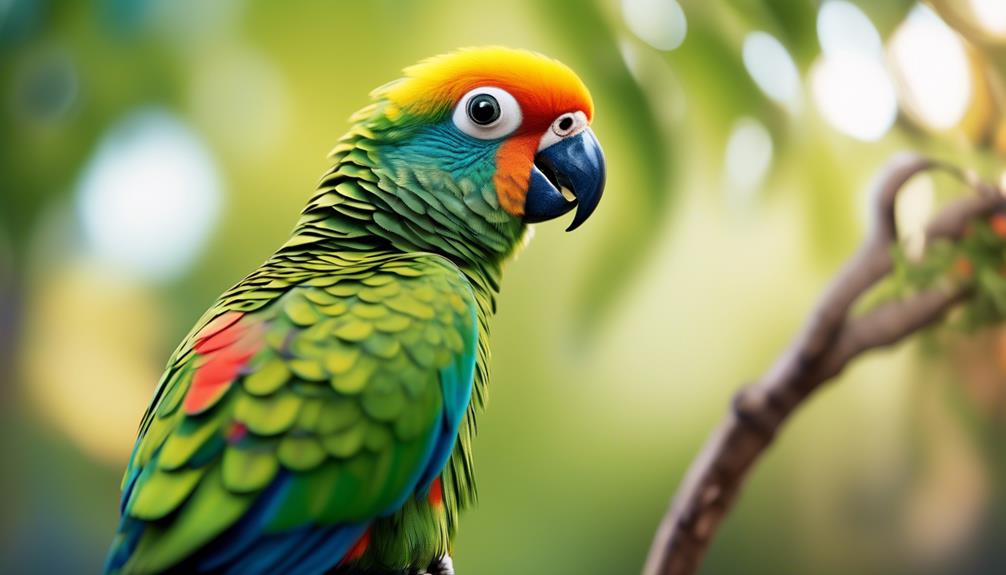
When considering the personality of a Jardine’s Parrot, one can expect an intelligent and affectionate companion. Here are some key traits that make them a delightful pet:
- Playful and energetic: Jardine’s Parrots are known for their playful nature. They love engaging in interactive activities and can keep you entertained with their antics.
- Social and affectionate: These parrots enjoy interaction with humans and thrive on forming deep bonds with their owners. They love cuddling and being showered with affection.
- Independent and adaptable: Jardine’s Parrots are laid-back birds that can entertain themselves with toys when you’re busy. They’re also adaptable to different environments, making them a great choice for families with children or individuals with limited free time.
With their intelligence, charm, and ability to provide great companionship, Jardine’s Parrots make wonderful pets for all.
Tips for Owning a Jardine’s Parrot
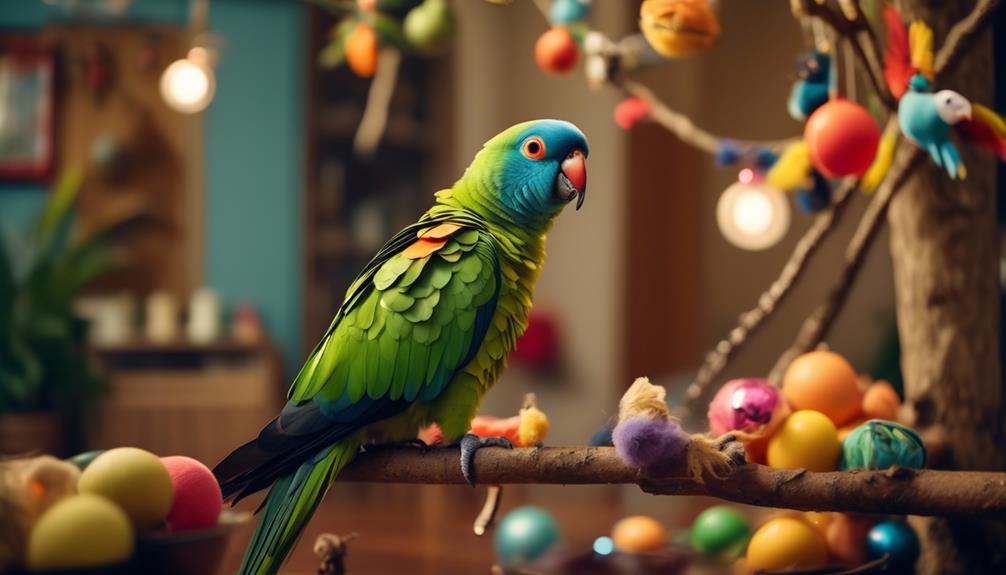
If you’re considering owning a Jardine’s Parrot, here are some helpful tips to ensure a happy and healthy relationship with your feathered companion.
| Tips for Owning a Jardine’s Parrot | |
|---|---|
| 1. Provide a spacious cage with plenty of room for your parrot to move around and stretch its wings. | 2. Offer a varied diet consisting of seeds, fruits, vegetables, and occasional treats like rice and chicken. |
| 3. Spend quality time interacting with your parrot through play, training, and socialization. | 4. Provide mental stimulation with toys, puzzles, and foraging activities to prevent boredom. |
| 5. Maintain a clean environment by regularly cleaning the cage and providing fresh water for bathing. | 6. Schedule regular veterinary check-ups to ensure your parrot’s health and well-being. |
| 7. Create a safe and secure space for your parrot, free from toxic plants, household chemicals, and other hazards. | 8. Respect your parrot’s need for rest and quiet time, providing a peaceful environment for sleep. |
What Makes the Jardine’s Parrot a Perfect Companion Compared to the Black Capped Conure?
Many people find the Jardine’s parrot to be a perfect companion due to its intelligence and playful nature. Compared to the charming black capped conure, the Jardine’s parrot is known for its outgoing personality and ability to mimic human speech, making it a popular choice among bird lovers.
Conclusion
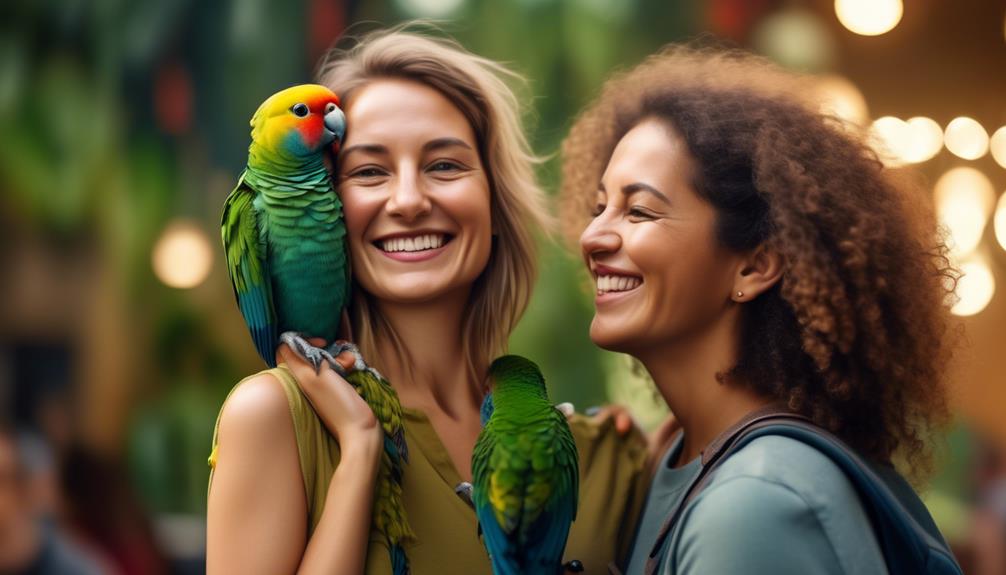
In summary, owning a Jardine’s Parrot can be a rewarding and fulfilling experience for any bird lover. These vibrant and charming parrots have many qualities that make them an ideal companion. Here are a few reasons why you should consider adding a Jardine’s Parrot to your family:
- Affectionate and intelligent: Jardine’s Parrots are known for their affectionate nature and ability to form deep bonds with their owners. They’re also highly intelligent and can provide great company and entertainment.
- Social and playful: These parrots love interaction and enjoy spending time with their human companions. They’re playful and energetic, making them a fun addition to any household.
With their beautiful colors, delightful personality, and long lifespan, Jardine’s Parrots are a wonderful choice for anyone looking for a feathered friend to brighten their days.
Frequently Asked Questions
Can Jardine’s Parrots Fly Long Distances?
Yes, Jardine’s parrots can fly long distances. They are strong flyers and can cover large areas in search of food and nesting sites. However, they also enjoy spending time with their human companions.
How Do Jardine’s Parrots Communicate With Each Other?
Jardine’s Parrots communicate with each other through vocalizations and body language. They have a wide range of vocalizations and can mimic sounds and other parrots. They also use body movements and gestures to communicate their intentions and emotions.
Do Jardine’s Parrots Require a Special Type of Cage?
No, Jardine’s Parrots do not require a special type of cage. A standard bird cage is suitable as long as it provides enough space for them to move around comfortably and has appropriate perches and toys.
Are Jardine’s Parrots Prone to Any Specific Diseases?
Jardine’s Parrots can be prone to skin and feather diseases in dry environments. Regular bathing, veterinary check-ups, and a balanced diet are important for their optimal health and well-being.
Can Jardine’s Parrots Be Trained to Perform Tricks or Commands?
Yes, Jardine’s Parrots can be trained to perform tricks and commands. With their intelligence and ability to mimic sounds, they can learn a variety of tricks and commands, making them a fun and entertaining companion.
Conclusion
In conclusion, if you’re looking for a vibrant and charming companion that will bring joy and excitement into your life, the Jardine’s Parrot is the perfect choice.
With its stunning green feathers, talkative nature, and ability to form deep bonds, this bird will surely bring happiness and entertainment to your home.
Whether you have children or limited free time, the Jardine’s Parrot is the ideal companion for all.
So why wait? Bring home this lovely bird and experience the joy it brings firsthand.

